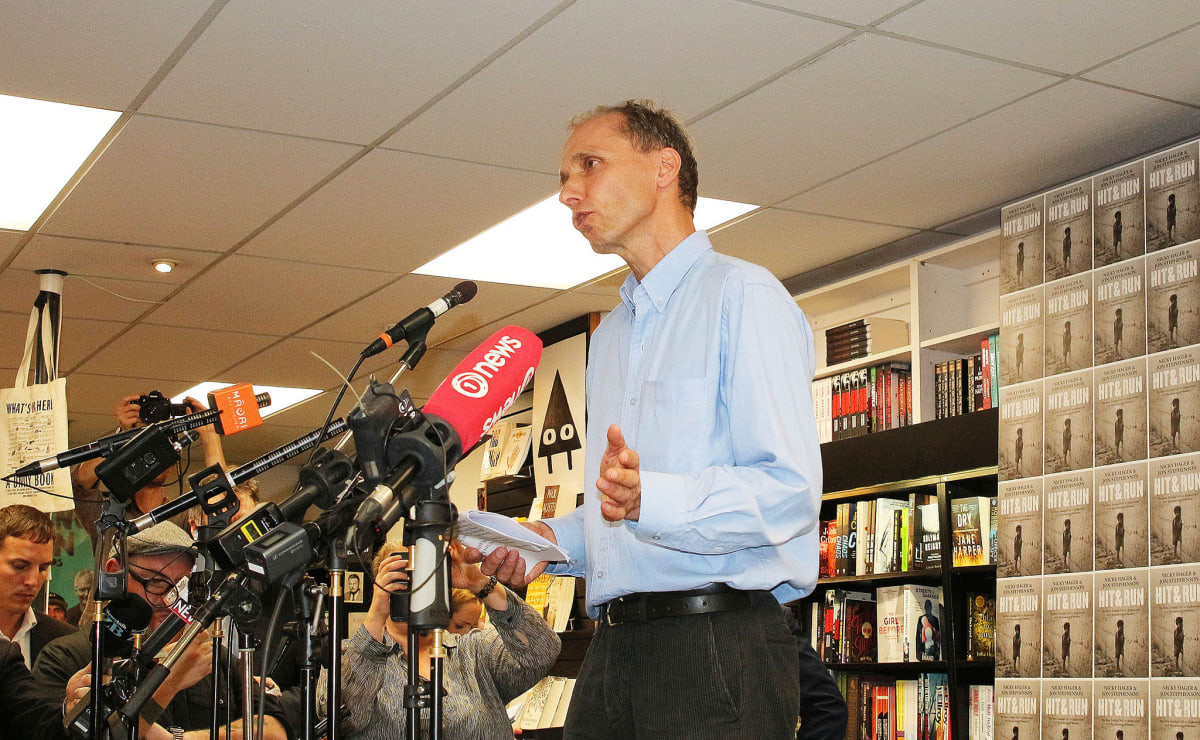
With journalists regularly facing pressure to reveal their sources, one MP drafted a law change to provide better safeguards for them - but the legislation is now being spiked over officials' concerns about an overly broad scope
A law change to provide stronger protections to investigative journalists and their sources has been killed off over “insurmountable drafting issues” uncovered during the legislative process.
However, the Labour MP in charge of the bill says she has plans to work on replacement legislation following the decision.
In 2014, police raided the house of Dirty Politics author Nicky Hager in a bid to identify the source of hacked emails shared with him by an anonymous source.
The raid sparked concern about the violation of Hager’s journalistic privilege, and led to a court case that found the police’s actions were “fundamentally” unlawful.
In the wake of the Hager raid, former Labour MP Louisa Wall drafted a member’s bill to change the definition of journalist in the Evidence Act to explicitly cover investigative journalists, while also amending the Search and Surveillance Act to ensure journalists’ sources were “clearly protected” in relation to production orders and police searches.
Parliament’s justice select committee had been due to report back on the Protection of Journalists’ Sources Bill ahead of a second reading, but this week said it had received a letter from Ingrid Leary (who took over the legislation from Wall after the latter’s resignation) informing them she planned to withdraw the bill.
“The member told us that there are insurmountable drafting issues with the bill, and that the bill would not achieve its intended policy outcome. In accordance with the member’s wishes, we therefore do not recommend that the bill proceed.”
A departmental report from the Ministry of Justice outlined a number of concerns with the legislation, saying its scope was “very broad, extending beyond situations where journalistic privilege may be at issue”.
The bill’s provisions would apply to all production orders and search warrants for material held by or relating to a journalist, including “situations where there is no reason to believe that a journalist’s source is at issue and where the material sought has nothing to do with a journalist’s work (for example, where a journalist is suspected of committing an offence unrelated to their work)”.

Officials said the proposed amendment to the definition of ‘journalist’ was probably unnecessary, with case law indicating the current definition could already cover investigative journalists who write books.
While the bill’s procedural requirements were aimed at protecting journalistic privilege, a number of other areas (such as legal professional privilege) were covered under the Search and Surveillance Act.
“Treating journalistic privilege differently from other recognised privileges creates inconsistencies in the way recognised privileges are treated. It may also lead to interpretive difficulties and uncertainty with respect to other recognised privileges.”
Wellington barrister Felix Geiringer, who acted for Hager in his court case against police, told Newsroom the draft legislation touched on issues of law that were more complex than those usually dealt with by member’s bills.
“I do accept that there were difficulties that needed to be overcome - I’m not sure they’re insurmountable, but they are difficult and they would require quite a bit of work.”
The court’s decision in the Hager case meant there was now legal precedent protecting investigative journalists, Geiringer said.
While a new law passed by Parliament could give police a clearer idea of how to act in similar situations, there was also a risk of any legislation actually reducing the protection currently in place.
Geiringer said the Government could consider what changes, if any, to make as part of a broader review of the Search and Surveillance Act.
“The democratic principles involved with the fourth estate being the last bastion for people to go to, it's incredibly important that we have that in a thriving democracy - so it is something to be looked at, but it needs to be done in a proportionate way.” - Ingrid Leary, Labour MP
Leary told Newsroom she still believed in the need to better protect journalists’ sources, but it had become clear from officials’ analysis and public submissions that the legislation as drafted was “a bit of a sledgehammer to crack a walnut”.
“It’s really too broad - it could be panel-beaten into shape but I think it would be more efficient just to withdraw it and get a more tailored bill.”
Leary, a former journalist who once faced a court summons over a Campbell Live interview with an informant allegedly involved in the theft of 96 medals from the Waiouru Army Museum, said it would be helpful to codify the case law protecting investigative journalists like Hager so authorities had clearer guidance.
“The democratic principles involved with the fourth estate being the last bastion for people to go to, it's incredibly important that we have that in a thriving democracy - so it is something to be looked at, but it needs to be done in a proportionate way.”
Leary said she intended to revisit the idea of legislative changes to look after journalists’ sources, through either a member’s bill or a broader discussion with the Labour Party caucus.
“There's lots of different ways that we can progress this but it's not something that I want to see dropped by the wayside because it is really important - particularly with social media platforms and misinformation that's around, the protection of journalists' sources and the resilience of the fourth estate is incredibly important.”







